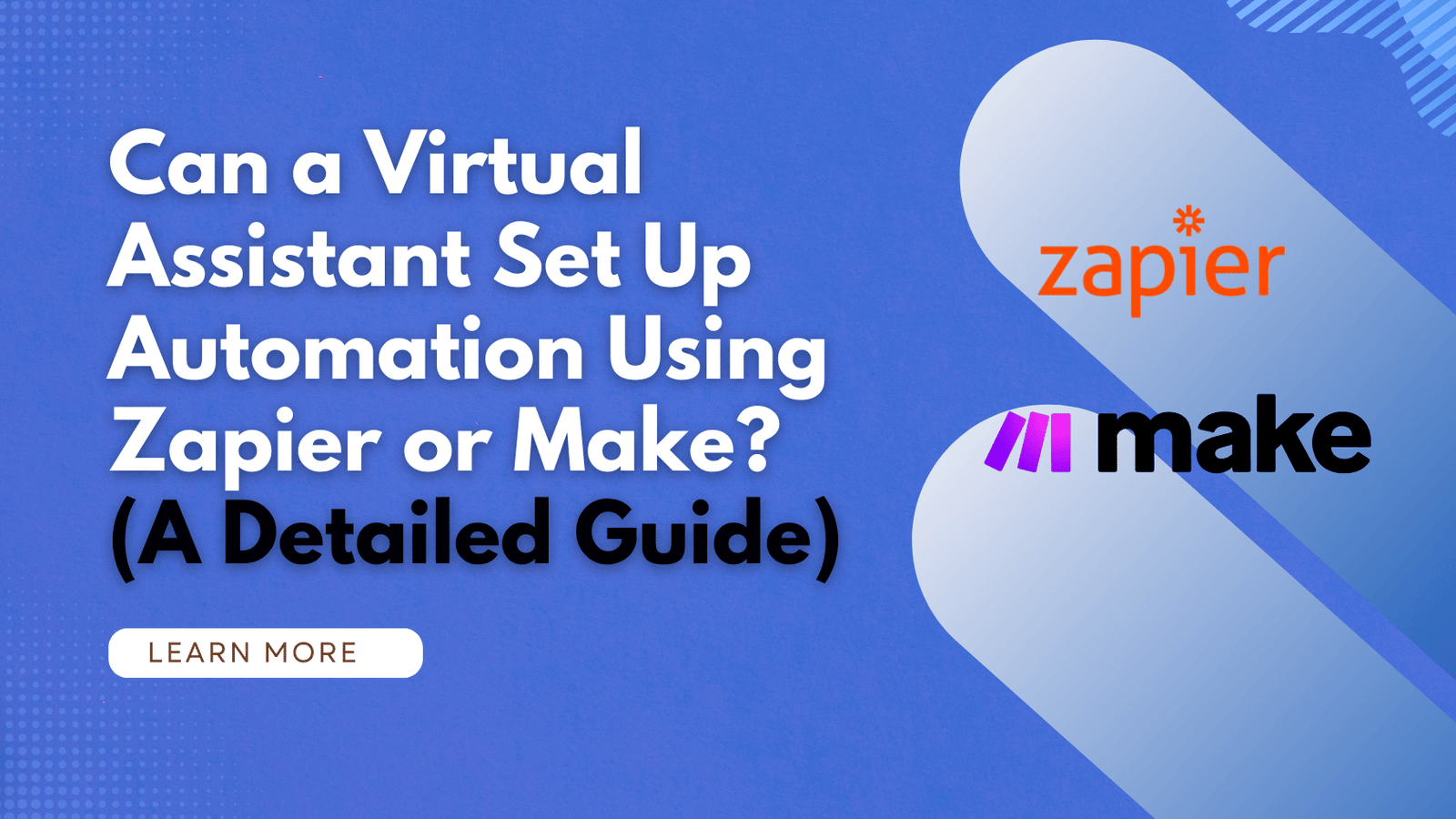How to Choose a Virtual Assistant Service for Real Estate Professionals
Real estate professionals often juggle numerous tasks, from client communication and property showings to marketing and administrative duties. A virtual assistant (VA) can significantly lighten this load, freeing up time to focus on core business activities like closing deals. But with so many VA services available, how do you choose the right one?
- How to Choose a Virtual Assistant Service for Real Estate Professionals
- 1. Understand Your Needs and Requirements
- 2. Research and Evaluate Potential Virtual Assistant Services
- 3. Due Diligence: Verify Credentials and Experience
- 4. Interview and Assess Potential VAs
- 5. Onboarding and Training Your Virtual Assistant
- 6. Recent Market Signals and Considerations (USA, UK, New Zealand, Singapore, Australia, UAE)
- 7. Pricing Models of Virtual Assistant Services
- FAQ: Choosing a Virtual Assistant Service for Real Estate Professionals
1. Identify Your Needs and Delegate-able Tasks
Before you start your search, clearly define what tasks you want to delegate. Are you looking for help with:
- Administrative Tasks: Managing your calendar, scheduling appointments, handling email correspondence, data entry.
- Marketing: Creating social media content, managing listings, designing marketing materials.
- Client Communication: Answering phone calls, responding to inquiries, managing client databases.
- Transaction Coordination: Preparing paperwork, following up with parties involved in a transaction.
- Research and Analysis: Market research, competitor analysis, property data gathering.
Understanding your needs will help you identify the specific skills and expertise you require in a VA. Consider how many hours per week you anticipate needing support.
2. Evaluate the VA Service’s Specialization and Expertise
Not all VA services are created equal. Some specialize in specific industries or skill sets. Look for a service that has experience working with real estate professionals and understands the unique challenges and demands of the industry. Do they offer VAs with specific experience in real estate tasks like property listing management or transaction coordination?
3. Consider Pricing and Plans
VA services typically offer various pricing models, including hourly rates, monthly packages, and project-based fees. Understand the cost structure and ensure it aligns with your budget and anticipated usage. Flexible hourly plans, offer a curated selection (e.g., 5, 10, 20, 30 hours per month) which can be beneficial for those with varying needs. Some services offer free trials or introductory offers, allowing you to test the service before committing to a long-term plan.
4. Assess Communication and Project Management Processes
Effective communication is crucial for a successful VA partnership. How does the service facilitate communication between you and your VA? Do they offer a dedicated project management platform or use standard tools like email and phone? A Dedicated Supervisor overseeing your VA, shift, processes, and reporting can alleviate the need for direct micro-management.
5. Check for Data Security and Confidentiality Measures
Real estate transactions involve sensitive client information. Ensure the VA service has robust security measures in place to protect your data and maintain confidentiality. Inquire about their data encryption protocols, access controls, and non-disclosure agreements.
6. Read Reviews and Seek Recommendations
Before making a decision, research the VA service’s reputation. Read online reviews and testimonials from other real estate professionals. Ask for recommendations from colleagues or industry peers who have experience working with VAs. A positive reputation and satisfied clients are strong indicators of a reliable and effective service.
1. Understand Your Needs and Requirements
Before diving into the world of virtual assistant services, it’s crucial to pinpoint exactly what tasks you need help with. A clear understanding of your needs will guide your selection process and ensure you choose a service that aligns with your business goals.
Identify Your Pain Points
What are the most time-consuming or tedious tasks that are taking you away from core real estate activities like prospecting, showing properties, and closing deals? Common tasks that real estate professionals delegate include:
- Administrative Tasks: Managing calendars, scheduling appointments, handling emails, data entry.
- Marketing Support: Creating social media content, managing online advertising, email marketing campaigns, preparing marketing materials.
- Customer Support: Answering inquiries, providing property information, following up with leads.
- Transaction Coordination: Managing paperwork, coordinating inspections, ensuring deadlines are met.
- Research and Analysis: Market research, property valuations, lead generation.
Determine the Required Skill Sets
Once you know the tasks you want to delegate, consider the skills required to perform them effectively. Do you need a VA with experience in:
- Real estate specific software (e.g., CRM, MLS)?
- Social media marketing and content creation?
- Customer service and communication?
- Administrative and organizational skills?
Consider Your Budget and Time Commitment
Virtual assistant services offer various pricing models. Some services provide flexible hourly plans, while others offer dedicated plans for a set number of hours per week or month. Understanding your budget and the amount of time you’re willing to dedicate to managing a VA will help you narrow down your options. For example, a service might offer curated hourly monthly plans of (5, 10, 20, 30 hours) or build a team with Dedicated Plans, for 80 hours, or for 160 hours, or multi-VA setups. There might even be opportunities to start with a free option like a Forever Free Plan, which gives you 1 free hour every month with task support and rollover benefits.
Evaluate Your Communication Preferences
How do you prefer to communicate? Do you need a VA who can respond quickly to emails, participate in video calls, or use specific project management tools? Clearly define your communication expectations to ensure a smooth working relationship.
2. Research and Evaluate Potential Virtual Assistant Services
Finding the right virtual assistant service for your real estate business requires careful research and evaluation. Not all services are created equal, and aligning their offerings with your specific needs is crucial for a successful partnership.
Define Your Needs
Before you even start looking at different VA services, clearly define what tasks you want to delegate. This will help you narrow your search and identify services that specialize in those areas. Consider tasks such as:
- Administrative tasks: Managing calendars, scheduling appointments, handling emails, data entry.
- Marketing support: Creating social media content, managing online advertising campaigns, designing marketing materials, managing real estate blog, create and schedule social media posts.
- Customer support: Answering phone calls, responding to inquiries, managing customer databases.
- Technical tasks: Website maintenance, CRM management, lead generation.
- Transaction coordination: Assisting with paperwork, managing deadlines, communicating with clients and other parties involved in the transaction.
Explore Different Service Models
Virtual assistant services operate under various models. Some offer hourly plans, while others offer dedicated VA plans or even team-based solutions. Understanding these models will help you choose the best fit for your budget and workload.
For instance, some services offer flexible hourly monthly plans, such as 5, 10, 20, or 30 hours, ideal for businesses with fluctuating needs. Other plans allow you to build a dedicated team with options for 80 hours or 160 hours, which can be beneficial for consistent, ongoing support. A free plan with one free hour every month could allow to test the service before committing to a monthly plan. Services often include management of your VA, processes, and reporting on your behalf.
Check for Real Estate Specialization
While general virtual assistants can be helpful, consider prioritizing services that specialize in the real estate industry. These VAs are more likely to understand the nuances of the market, the specific software used by real estate professionals, and the relevant regulations.
Read Reviews and Testimonials
Online reviews and testimonials offer valuable insights into the quality of service provided by different VA companies. Look for reviews that mention specific aspects of the service, such as responsiveness, accuracy, and communication skills.
Consider Location and Time Zone
The location and time zone of the virtual assistant can impact communication and responsiveness. While some prefer working with VAs in the same time zone for easier collaboration, others find that different time zones can offer round-the-clock support.
Assess Communication and Reporting
Clear and consistent communication is essential for a successful VA partnership. Inquire about the communication channels used by the service (e.g., email, phone, instant messaging) and the frequency of reporting. Some services may offer dedicated supervisors to manage your VA, shifts, processes, and reporting. This allows to focus on the core business without the need to manage the VA directly.
3. Due Diligence: Verify Credentials and Experience
Before committing to a virtual assistant service, thorough due diligence is crucial. This step helps you assess the service’s reliability, expertise, and alignment with your real estate business needs. Verifying credentials and experience minimizes the risk of hiring an unsuitable VA and maximizes the potential for a successful partnership.
Background Checks and Verification
Inquire about the service’s background check process for its VAs. A reputable service should conduct thorough background checks to ensure trustworthiness and professionalism. This may include verifying identity, checking criminal records, and confirming employment history.
Reviewing VA Profiles and Skill Sets
Request access to VA profiles to review their qualifications, experience, and skill sets. Look for experience in the real estate industry, familiarity with relevant software and tools (e.g., CRM systems, MLS platforms, marketing automation), and expertise in specific tasks you need assistance with. Consider whether the VA possesses the key skills for real estate virtual assistant roles.
Assessing Real Estate Specific Knowledge
Given the specific nature of the real estate industry, assess the VA service’s and individual VA’s understanding of real estate processes, terminology, and regulations. Have they worked with real estate agents or brokerages before? Do they understand the lifecycle of a transaction? This knowledge base ensures a smoother onboarding process and efficient task execution.
Client Testimonials and Reviews
Explore online reviews and testimonials from other real estate professionals who have used the service. Look for patterns in feedback regarding communication, responsiveness, accuracy, and overall satisfaction. This provides valuable insights into the service’s track record and reputation.
Trial Periods and Sample Tasks
Many virtual assistant services offer trial periods or allow you to assign sample tasks before committing to a long-term contract. Take advantage of this opportunity to evaluate the VA’s performance, communication style, and ability to meet your expectations. This hands-on experience is invaluable in determining whether the service is a good fit for your business.
4. Interview and Assess Potential VAs
Once you’ve narrowed down your options to a few virtual assistant services, it’s crucial to interview and assess the individual VAs who might be working with you. Remember, the service itself is only as good as the people they employ and assign to your account.
Key Questions to Ask During the Interview:
- Experience with Real Estate: “Tell me about your experience specifically working with real estate professionals. What tasks have you handled in the past?” This will help you gauge their familiarity with the industry and its unique needs.
- Relevant Skills: “Do you have experience with CRM management, lead generation, marketing support, property research, or other tasks relevant to my business?” A strong understanding of the tools and processes used in real estate is essential.
- Communication Style: “How do you prefer to communicate? What is your typical response time?” Clear and prompt communication is vital for a successful VA relationship.
- Problem-Solving Abilities: “Describe a challenging situation you faced while working with a real estate client and how you resolved it.” This will give you insight into their problem-solving skills and ability to handle unexpected issues.
- Availability and Time Zone: “What are your available hours and time zone? How many hours per week can you dedicate to my tasks?” Ensure their availability aligns with your needs.
Assessing Skills and Qualifications:
Beyond the interview, consider these methods for assessing a VA’s capabilities:
- Trial Period: Many virtual assistant services offer a trial period or a short-term project to test the VA’s skills and work ethic. This is a great way to evaluate their performance firsthand.
- Skill Assessments: Some services may provide skill assessments or allow you to administer your own to evaluate specific skills like data entry, writing, or social media management.
- Reference Checks: Request references from previous clients to get an objective perspective on the VA’s performance and reliability.
Understanding the Virtual Assistant Service’s Support Structure:
Beyond the individual VA, consider the support structure offered by the service. For example, some services provide a dedicated supervisor who manages the VA, their shift, processes, and reporting. This can be a significant benefit, as it reduces the burden on you to manage the VA directly.
When evaluating virtual assistant services, consider the different plan structures. Some offer flexible hourly plans, such as curated Hourly Monthly Plans of (5, 10, 20, 30 hours). These plans are suitable for tasks like admin, tech, customer support, marketing, creative tasks, or executive work. Other services offer dedicated plans, such as 80-hour or 160-hour options, which are suitable if you require a VA for a significant amount of time each week. In some cases, they have multi-VA setups too.
Remember that choosing the right virtual assistant is an investment in your business. Take the time to thoroughly interview and assess potential VAs to find someone who is a good fit for your needs and working style.
5. Onboarding and Training Your Virtual Assistant
Once you’ve selected a virtual assistant service, the onboarding and training process is crucial for a successful partnership. A smooth onboarding process ensures your VA understands your business needs, preferred communication styles, and specific real estate processes.
Onboarding Best Practices
- Clearly Define Expectations: Provide a detailed job description outlining responsibilities, key performance indicators (KPIs), and desired outcomes.
- Share Essential Resources: Grant access to necessary systems, software (like your CRM), and documents (listing templates, contracts). Consider creating a shared drive or project management tool for easy access.
- Establish Communication Protocols: Determine preferred communication channels (email, phone, instant messaging) and response time expectations. Agree on meeting schedules for updates and feedback.
- Introduce Team Members: If your VA will be interacting with other members of your real estate team, facilitate introductions and clarify roles.
Effective Training Strategies
Even experienced virtual assistants require training specific to your real estate business. Tailor the training to the tasks they’ll be performing.
- Provide Comprehensive Training Materials: Create tutorials, videos, or written guides explaining your processes. Screen recordings of task completion can be especially helpful.
- Offer Hands-On Training: Start with simple tasks and gradually increase complexity. Provide opportunities for your VA to ask questions and receive feedback.
- Implement a Shadowing Period: If possible, have your VA shadow you (virtually) or other team members as they perform similar tasks. This allows them to observe your workflow and learn best practices.
- Regular Performance Reviews: Schedule regular check-ins to assess progress, address challenges, and provide constructive feedback. This helps the VA continuously improve their performance.
Some virtual assistant services, such as those offering dedicated supervisors, may handle a significant portion of the training process. These supervisors can manage the VA’s workflow, ensuring adherence to your processes and providing ongoing support.
6. Recent Market Signals and Considerations (USA, UK, New Zealand, Singapore, Australia, UAE)
The virtual assistant (VA) landscape for real estate professionals is constantly evolving. Staying informed about recent market signals and considerations within key geographic areas is crucial for making an informed decision.
General Trends Across Regions
Across the USA, UK, New Zealand, Singapore, Australia, and the UAE, several overarching trends are shaping the demand for and utilization of virtual assistants in the real estate sector:
- Increased Adoption of Technology: Real estate agents are increasingly relying on technology for marketing, lead generation, and client communication. This fuels the need for VAs skilled in managing these digital tools and platforms.
- Focus on Core Business Activities: Agents are recognizing the value of delegating administrative and repetitive tasks to VAs, freeing up their time to focus on client interaction, property showings, and closing deals.
- Cost Optimization: Hiring a VA can be a more cost-effective solution than hiring a full-time employee, particularly for smaller agencies or independent agents.
- Scalability and Flexibility: The ability to scale VA support up or down based on fluctuating business needs is a major advantage, aligning with seasonal market shifts in real estate.
Regional Nuances
While the general trends are consistent, there are specific nuances in each region:
USA and UK
In the USA and UK, the demand for VAs with strong marketing and lead generation skills is particularly high, driven by competitive markets. VAs skilled in social media marketing, email campaigns, and content creation are highly sought after.
Australia and New Zealand
Australia and New Zealand share similar trends, with a growing emphasis on VAs who can manage property listings and handle client inquiries across different time zones. The importance of VAs skilled in local regulations and market conditions is paramount.
Singapore and UAE
Singapore and the UAE, known for their fast-paced real estate markets, are seeing increased demand for VAs who can provide administrative support and transaction coordination. Multi-lingual VAs are often highly valued in these regions.
Key Considerations for Real Estate Professionals
When choosing a virtual assistant service, consider these factors in relation to the market in your region:
- Specialized Expertise: Does the VA service offer VAs with specific real estate knowledge and experience?
- Geographic Understanding: Does the VA have a grasp of the local market dynamics and regulations in your area?
- Technology Proficiency: Is the VA proficient in the real estate-specific software and tools used in your region?
- Communication Skills: Can the VA communicate effectively with clients and other stakeholders in your region’s preferred language(s)?
7. Pricing Models of Virtual Assistant Services
Understanding the various pricing models is crucial for selecting a virtual assistant service that aligns with your budget and needs. Virtual assistant services for real estate professionals generally offer several different pricing structures, each with its own advantages.
Hourly Plans
Hourly plans are a popular choice, especially for those with fluctuating needs. You pay for the actual time the virtual assistant works. This offers flexibility, allowing you to scale up or down as required.
For example, some services offer curated hourly monthly plans, such as 5, 10, 20, or 30 hours. This model allows you to delegate admin, tech, customer support, marketing, or creative tasks.
Dedicated Plans
Dedicated plans provide a set number of hours per month with a specific virtual assistant assigned to your account. This is beneficial for establishing a consistent working relationship and ensuring the VA becomes familiar with your real estate business’s unique processes. These plans often involve 80 hours or 160 hours per month.
Project-Based Pricing
For specific tasks with defined deliverables, a project-based pricing model might be suitable. In this case, you agree on a fixed price for the completion of a particular project, regardless of the time it takes. This can be ideal for tasks like creating marketing materials or managing a specific marketing campaign.
Team-Based Plans
For larger real estate agencies or teams, team-based plans offer the opportunity to build a virtual team to handle a higher volume of tasks. These plans typically provide a set number of hours across multiple virtual assistants.
Free Trial/Freemium Options
Some services offer a free trial or a freemium plan. This allows you to test the service before committing to a paid plan. For example, some virtual assistant services offer one free hour every month to try out the service and the VA capabilities.
Choosing the right pricing model depends on your specific needs, budget, and the volume of work you need to delegate. Consider your long-term goals and scalability requirements when making your decision.
FAQ: Choosing a Virtual Assistant Service for Real Estate Professionals
What tasks can a real estate virtual assistant handle?
A real estate virtual assistant can handle a wide range of tasks, freeing up your time to focus on core activities like meeting clients and closing deals. These tasks can include:
- Administrative Tasks: Managing your calendar, scheduling appointments, handling email correspondence, and data entry.
- Marketing Support: Creating marketing materials (flyers, brochures, social media posts), managing social media accounts, and assisting with email marketing campaigns.
- Customer Support: Responding to inquiries from potential clients, providing property information, and following up with leads.
- Transaction Coordination: Assisting with paperwork, coordinating inspections and appraisals, and ensuring smooth transaction processing.
- Research and Data Analysis: Conducting property research, analyzing market trends, and gathering data on potential investment opportunities.
What are the key factors to consider when choosing a VA service?
Several factors should influence your decision when selecting a virtual assistant service for your real estate business:
- Experience and Expertise: Does the service specialize in real estate or have experience working with real estate professionals? Look for VAs with knowledge of real estate terminology, processes, and software.
- Skills and Qualifications: Ensure the VAs have the necessary skills to handle the tasks you need assistance with, such as marketing, customer service, or administrative support.
- Communication and Availability: Clear and consistent communication is crucial. Consider the VA’s communication style, response time, and availability during your preferred working hours.
- Security and Confidentiality: Your real estate business involves sensitive client information. Choose a service with robust security measures and confidentiality agreements in place.
- Pricing and Payment Terms: Understand the service’s pricing structure (hourly, monthly, project-based) and payment terms. Compare different options and choose a plan that aligns with your budget and needs. Consider flexible hourly and team-based plans, like 5, 10, 20, or 30 hour options for hourly, or dedicated 80 or 160 hour plans for team options.
- Management and Support: Some services offer dedicated supervisors to manage the VA, shifts, processes and provide regular reporting. This can save you significant time and effort.
What are the benefits of using a virtual assistant service for real estate?
Hiring a virtual assistant can offer numerous benefits to real estate professionals:
- Increased Efficiency: Delegate time-consuming tasks and focus on core activities that generate revenue.
- Reduced Costs: Save on overhead costs associated with hiring a full-time employee, such as salary, benefits, and office space.
- Improved Work-Life Balance: Free up your time to enjoy a better work-life balance and reduce stress.
- Access to Specialized Skills: Tap into a pool of talent with specialized skills in areas like marketing, customer service, and administrative support.
- Scalability: Easily scale your support as your business grows and your needs change.
How do I get started with a virtual assistant service?
The first step is to clearly define your needs and identify the tasks you want to delegate. Once you have a clear understanding of your requirements, research different VA services and compare their offerings. Many services offer free trials or consultations to help you assess their suitability. You can also start with a trial Forever Free Plan with limited hours to check the service. Before you decide to choose a service, make sure to communicate clearly with them about your specific needs and expectations.











